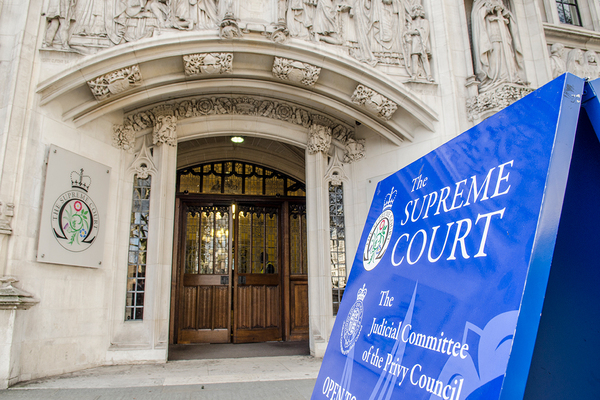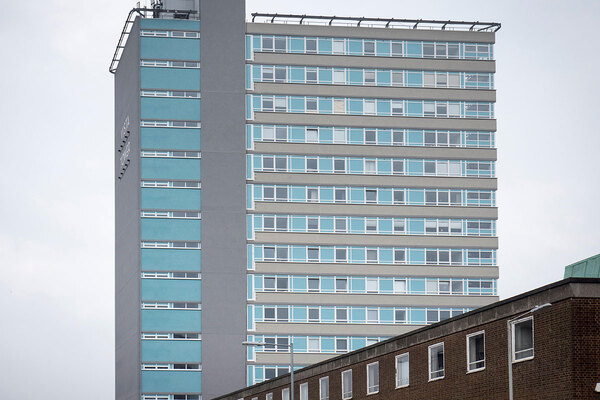You are viewing 1 of your 1 free articles

What 2020 cases told us about the Public Sector Equality Duty and housing
Last year saw the courts make a number of significant rulings for social landlords about the Public Sector Equality Duty. Barrister Ruchi Parekh considers what it all means
In housing law circles, 2020 was arguably the year of the Public Sector Equality Duty. The issue was the sole focus of a number of housing-related appeals involving possessions as well as homelessness applications.
Readers will no doubt be familiar with the Public Sector Equality Duty – the duty to have due regard to the three equality aims, imposed by Section 149 of the Equality Act 2010. The duty applies across all public functions and involves having due regard to the need to:
- Eliminate discrimination, harassment, victimisation and other conduct prohibited by the act;
- Advance equality of opportunity between persons who share a relevant protected characteristic and persons who do not share it; and
- Foster good relations between persons who share a relevant protected characteristic and persons who do not share it
The general principles underlying the duty were considered by the appellate courts from its inception. The Bracking principles, for example, noted (among other features) that: the duty is personal to the decision-maker; any impacts must be assessed prior to the decision and not merely as a “rearguard action”; the duty must be “exercised in substance, with rigour, and with an open mind”; and it is a continuing duty.
However, these early cases were concerned with macro-policy decisions. A clarification of the context-specific nature of the Public Sector Equality Duty – in the housing context – came much later.
In the 2019 case Powell vs Dacorum BC, the Court of Appeal emphasised that the application of the Public Sector Equality Duty would vary from case to case, noting that the decision of a minister on a matter of national policy will engage very different considerations from that of a local authority housing officer deciding whether to take a particular step in ongoing possession proceedings.
What did we learn in 2020?
Last year, the appellate courts took the opportunity to provide further useful guidance on the subject. In particular:
- A court is entitled to refuse to dismiss a claim for possession where a breach of the Public Sector Equality Duty is relied on by way of defence if satisfied that it is “highly likely that the outcome would not have been substantially different” had no breach occurred (in the two 2020 cases Luton Community Housing Ltd v Durdana and Forward v Aldwyck Housing Group Ltd). The ‘highly likely’ test is derived from Section 31(2A) of the Senior Courts Act 1981, which deals with the refusal of relief on an application for judicial review. As sensibly recognised by the Court of Appeal, it would be most unusual if the ‘highly likely’ test was available in public law challenges, but that it could not be relied on by public bodies in private law possession claims in which a public law defence had been raised.
- A breach of the Public Sector Equality Duty can be cured by subsequent compliance with the duty at any later stage in possession proceedings (in the case Taylor v Slough BC). If there was any remaining doubt about the validity of this principle, it was (once again) put to rest in this appeal. Readers will recall that it was first set out in Barnsley MBC v Norton in 2021, and reaffirmed in the Powell case mentioned above.
- When making an assessment of vulnerability to determine priority need in the homelessness context, there is no requirement to also make express findings on the applicant’s disability or the effect of the Public Sector Equality Duty, we learned in the case McMahon v Watford BC. The Court of Appeal cautioned against raising technical arguments involving the Public Sector Equality Duty to attack an otherwise unimpeachable vulnerability assessment.
What’s left to fight about?
The 2020 decisions provided welcome clarification on the nature of the Public Sector Equality Duty, as well as Public Sector Equality Duty defences. The only remaining question, then, is whether there is anything left to fight about in 2021.
On the face of it, at least, it would appear that the big questions around the Public Sector Equality Duty have been definitively answered – in so far as possession claims and homelessness appeals are concerned. We now have a series of pragmatic decisions that have come down against using the Public Sector Equality Duty as a mere technical argument, and in favour of hard-pressed housing officers in local authorities and associations across the country who are making difficult decisions day in, day out.
However, the one question that the court in McMahon sidestepped is whether the ‘highly likely’ test applies to Section 204 appeals against homelessness review decisions. Having found no breach of the Public Sector Equality Duty on the facts, the court deliberately left the question of relief for another day. That being said, the legal teams in both Durdana and McMahon have their sights set on the Supreme Court. (At the time of writing, there is nothing further to report on that front.)
“It is worth noting that we have not yet seen the articulation of these Public Sector Equality Duty principles, at the appellate level, in the context of anti-social behaviour injunction proceedings”
It is also worth noting that we have not yet seen the articulation of these Public Sector Equality Duty principles, at the appellate level, in the context of anti-social behaviour (ASB) injunction proceedings (or indeed in the context of other ASB tools).
It would be extremely surprising if the courts were to change their approach when it comes to these types of proceedings, but it is nonetheless very likely to be argued about. One argument floating around in recent first-instance cases is whether it is a breach of the Public Sector Equality Duty (and discriminatory) to grant an interim ASB injunction against disabled persons without a full proportionality assessment. No doubt that we will see this, and other arguments, make their way to the higher courts in due course.
Only time will tell whether 2021 will outdo last year’s record on housing related Public Sector Equality Duty appeals. For now, however, the focus remains very much on pragmatism and substance over form.
Ruchi Parekh, barrister, Cornerstone Barristers
Sign up for our legal and regulation newsletter
Already have an account? Click here to manage your newsletters












